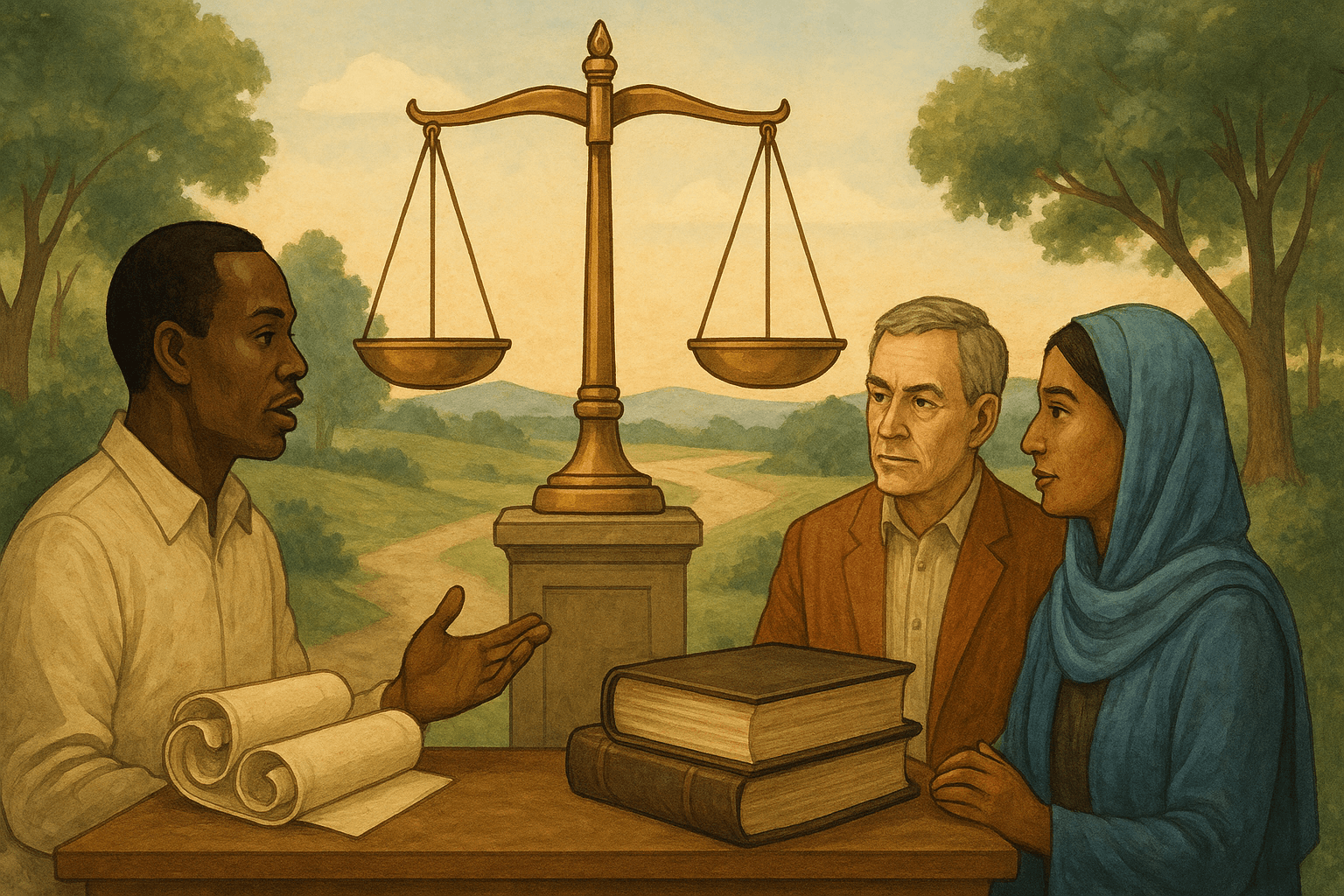Navigating the Tides of Law and Governance in Locke's Second Treatise

In John Locke's Second Treatise of Government , the theme of law and governance serves as a critical lens through which we can examine the foundations of political power and authority. Locke's arguments resonate deeply today, as they challenge us to reconsider how we define legitimacy in governance and the essential role of the social contract.
Locke begins his exploration by critiquing the notion of inherited authority. He posits that Adam, considered the first man, did not have divine or natural authority over his descendants. This perspective raises significant questions about the legitimacy of rulers who claim power through bloodlines rather than through the consent of the governed. In a world where political power often seems to stem from force rather than rightful claim, Locke invites us to reflect on what truly justifies authority.
As we delve deeper, we encounter Locke's concept of the state of nature, where he describes individuals existing in a realm of perfect freedom and equality, bound only by the law of nature. This law compels individuals to preserve life and property, promoting mutual respect and justice. Yet, as Locke highlights, the state of nature is fraught with challenges, leading to the necessity of civil government. This government must not wield absolute power; rather, it should operate within the bounds of established laws designed to safeguard individual liberties and promote the common good.
Locke's examination of the state of war further illustrates the importance of governance. He defines it as a condition marked by enmity and destruction, necessitating a common authority to restore peace. Through this lens, the role of government becomes clear: it is not merely about enforcing laws but about creating a safe environment where individuals can coexist peacefully.
In analyzing property rights, Locke connects labor with ownership, arguing that individuals have a natural right to the fruits of their labor. This notion complicates our understanding of wealth distribution and economic inequality within governance. The introduction of money, he warns, can lead to disparities that challenge the original principles of equality and communal resource sharing.
Transitioning to the practical aspects of governance, Locke emphasizes the need for a separation of powers. Legislative authority must derive from the consent of the governed, ensuring that laws apply equally to all. This is not merely a theoretical ideal; it’s a call to action for communities to actively participate in shaping their governance structures.
As we approach the end of Locke's exploration, he articulates the dangers of tyranny and usurpation. Any power exercised without the community's consent is illegitimate, and this serves as a poignant reminder that our freedoms are predicated on vigilant oversight of those in power. Moreover, when a government fails to uphold its trust, it is the right of the people to establish a new governing body that better serves their interests.
So, what does all this mean for us today? Locke's insights compel us to consider that true governance is built on a foundation of consent, mutual respect, and accountability. As we navigate the complexities of modern political landscapes, we must ask ourselves: Are our governments truly reflecting the will of the people? Are they acting in the best interest of their citizens? The themes of law and governance in Locke's work remind us that the quest for justice and equality is ongoing, urging us to remain engaged in the pursuit of a fair and just society.
Ultimately, Locke’s Second Treatise offers not just a critique of past governance but a roadmap for future political structures—one that prioritizes the voice and rights of individuals over the whims of the powerful. As we reflect on these principles, we are reminded that our collective journey towards equitable governance is a responsibility we all share, and it begins with understanding the very nature of the laws that govern us.
Books: Second Treatise of Government
Authors: John Locke
Publishers: Public Domain